Mossad Dossier on Iran's President Reportedly Portrayed Raisi as ‘Someone With Mental Disturbances’
09:55 GMT 11.08.2021 (Updated: 17:24 GMT 15.01.2023)
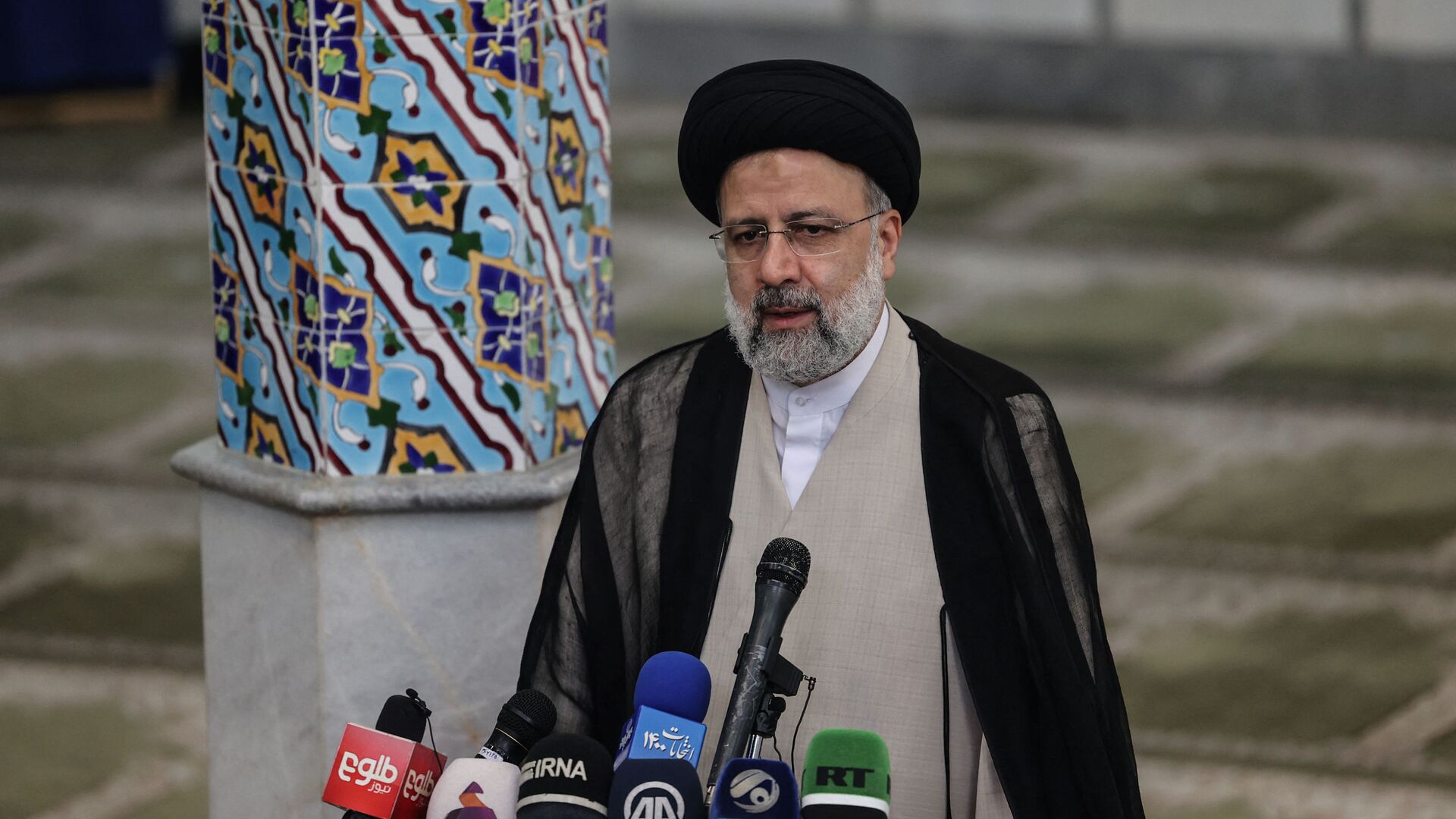
© AFP 2023 / ATTA KENARE
Subscribe
US Central Intelligence Agency chief William Burns was expected in Israel on Tuesday, with Walla News website saying he would be focusing on Iran's nuclear programme and its activities in the region with Prime Minister Naftali Bennett and his Israeli counterpart David Barnea.
Visiting US Central Intelligence Agency (CIA) chief William Burns was given a dossier describing Iran’s new president, Ebrahim Raisi, as an untrustworthy extremist who can’t be negotiated with, Channel 12 news reported.
The American diplomat serving as CIA director held talks in Israel on Wednesday with Prime Minister Naftali Bennett, with Iran's nuclear programme and its activities in the region high on their agenda, an Israeli statement said.
Walla news site earlier reported that Burns planned to meet with Prime Minister Naftali Bennett, Mossad spy agency head David Barnea and other senior intelligence figures. The Mossad official is said to have presented Burns with an Israeli assessment intended to show Raisi, who won the June 18 presidential race in Iran with nearly 62 percent of the vote to replace Hassan Rouhani, as incapable of negotiating a new nuclear deal.
According to the channel, cited by The Times of Israel, the profile on Raisi unabashedly depicted him as cruel, corrupt and unstable.
“The Mossad described him as someone with mental disturbances,” says the channel’s unsourced report.
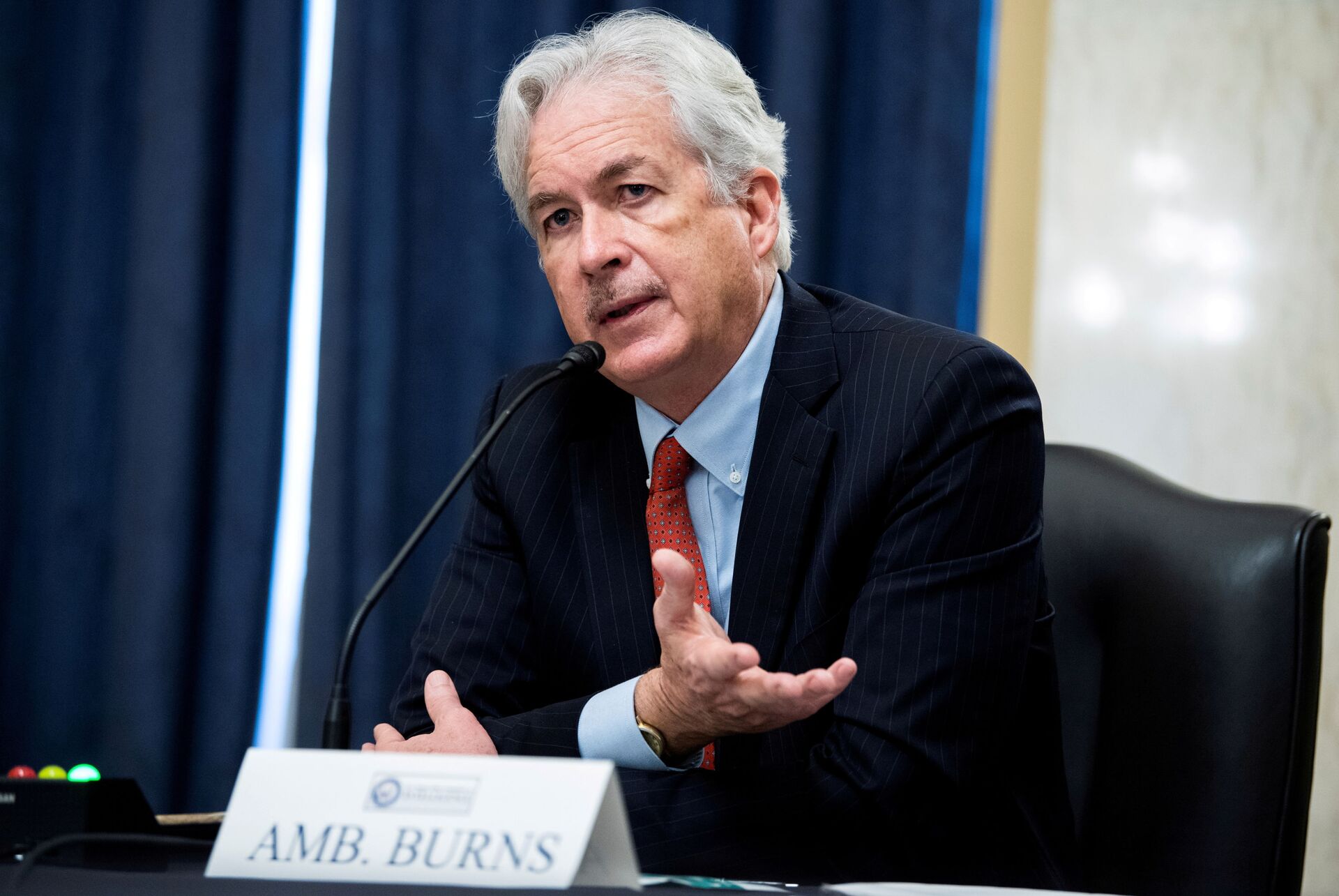
William Burns, nominee for Central Intelligence Agency (CIA) director, testifies during his Senate Intelligence Committee hearing on Capitol Hill in Washington, February 24, 2021.
© REUTERS / POOL
With over 33 years of experience in foreign policy, career diplomat William Burns has worked for the US State Department throughout several presidencies including the Obama administration. Burns is credited with having played a key role in starting talks with Iran that ultimately resulted in securing the JCPOA deal between Iran and major powers.
Burns is reportedly to also travel to Ramallah for talks with Palestinian Authority President Mahmoud Abbas and meet Palestinian intelligence chief Majed Faraj.
Stalled Iran Nuclear Deal
Ebrahim Raisi took office on 5 August, taking over from Hassan Rouhani, a relative moderate who had agreed to the landmark deal in 2015.
Under the Joint Comprehensive Plan of Action (JCPOA) penned with the P5+1 group of countries, including the United States, China, France, Russia, the United Kingdom, Germany and the European Union, Iran agreed to cap its nuclear activities, limiting enrichment of uranium up to 3.67 percent purity.
It was also to limit its stockpile of low-enriched uranium to no more than 300kg (660lbs), and to operate no more than 5,060 of its IR-1 centrifuges. In return, Iran was granted sanctions relief.
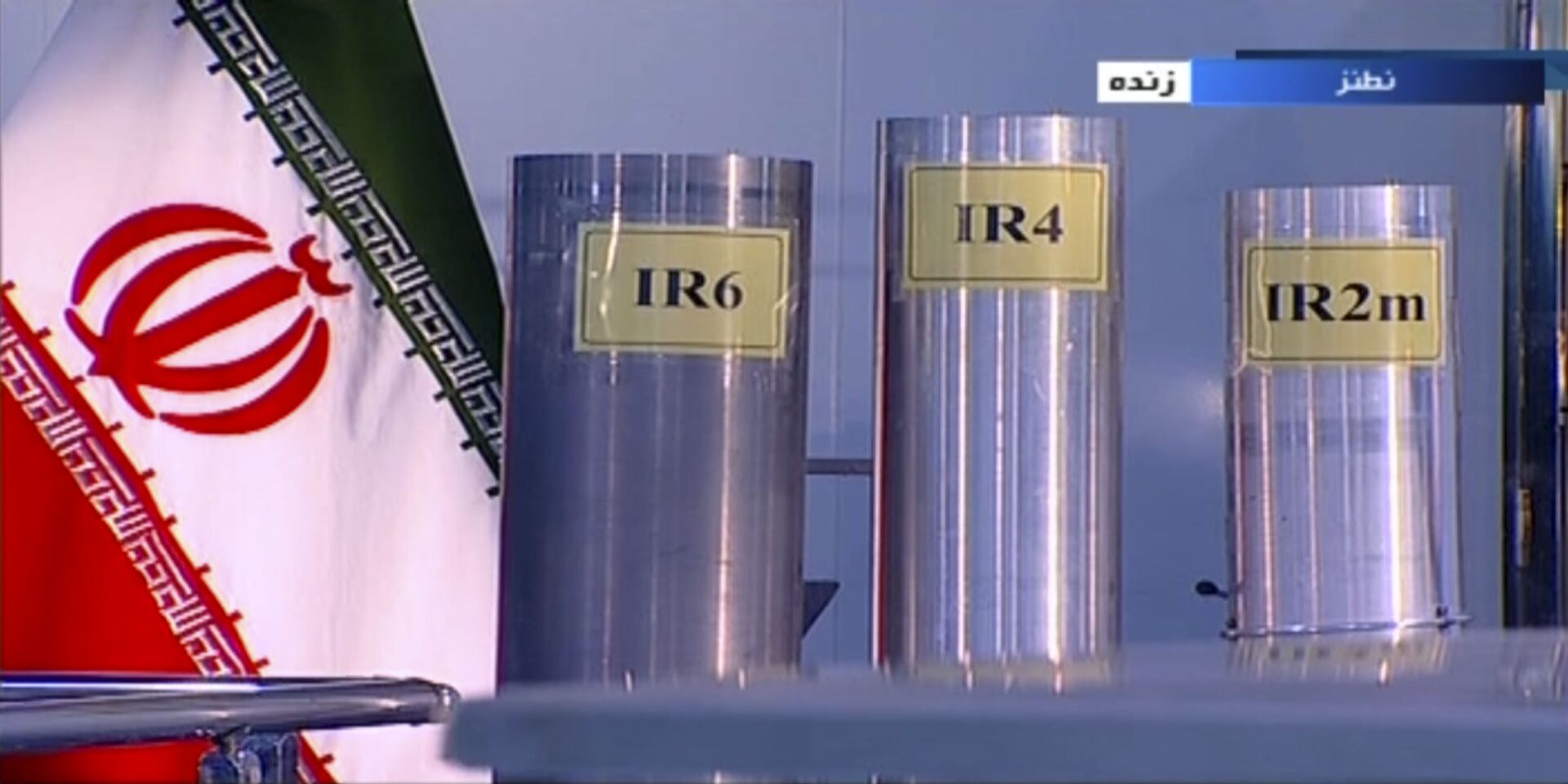
In this June 6, 2018 frame grab from Islamic Republic Iran Broadcasting, IRIB, state-run TV, three versions of domestically-built centrifuges are shown in a live TV program from Natanz, an Iranian uranium enrichment plant, in Iran
© AP Photo
Former president Donald Trump withdrew from the deal he had long lambasted as a “bad one” in 2018. US President Joe Biden has sought to rejoin the pact after taking office. Iran and the United States have been holding indirect talks on reviving the 2015 nuclear deal between Tehran.
Israel has vehemently opposed the nuclear deal with Iran.
Israel's prime minister Naftali Bennett urged the US and its allies to "wake up" to the threat of Iran amid the Vienna talks. Bennett said Iran's "regime of brutal hangmen" sought nuclear weapons. Tehran has repeatedly denied the nature of its nuclear programme was anything but peaceful.
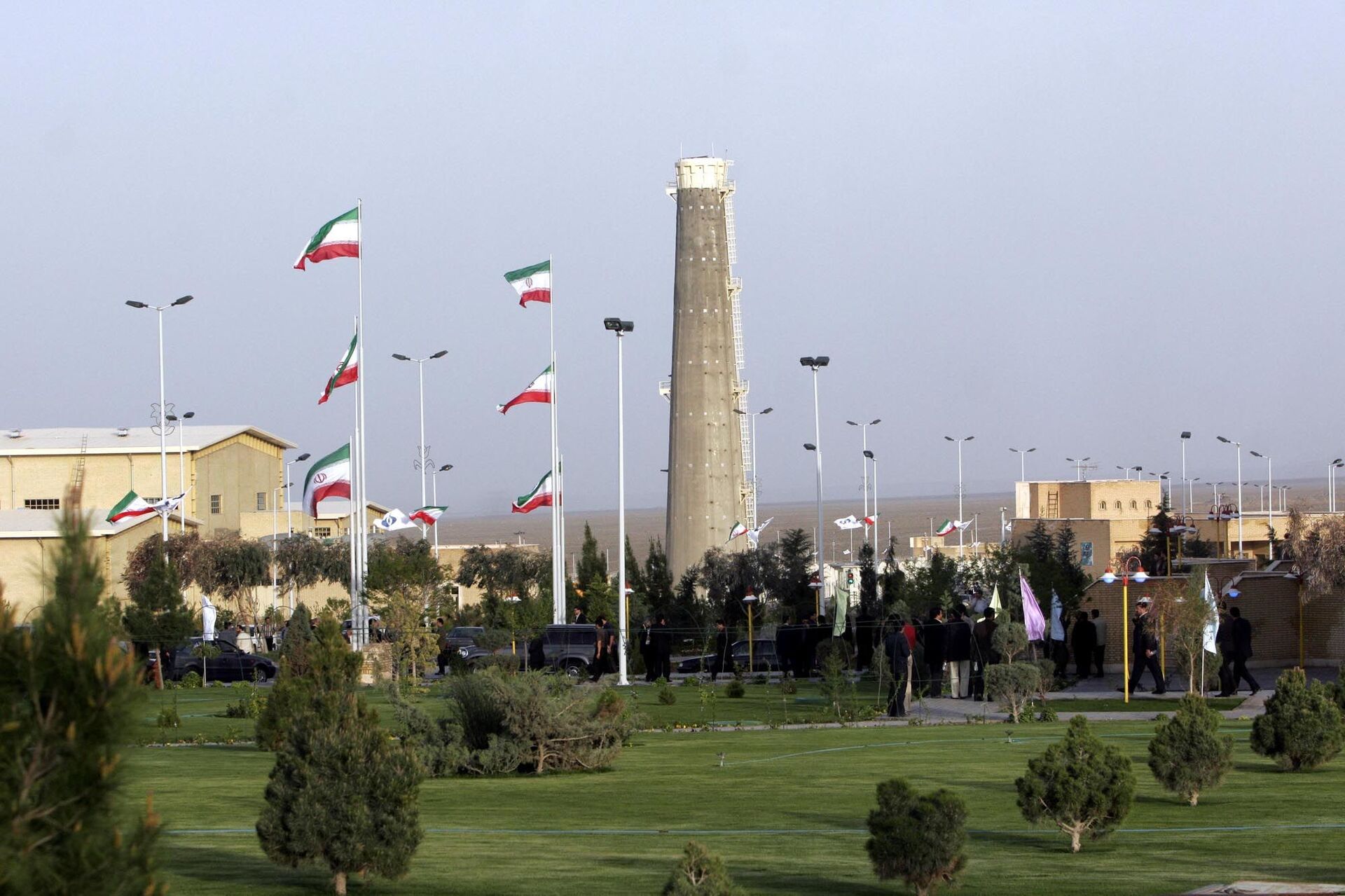
Iran's nuclear enrichment facility in Natanz in 300 kms 186 (miles) south of capital Tehran, Iran (File)
© AP Photo / HASAN SARBAKHSHIAN
The indirect talks involving the US and Iran launched in Vienna this spring have been stalling amid a dispute over which side should make concessions first. While Iran argued that the US must lift its unilateral sanctions, while Washington demanded that Tehran reduce its uranium enrichment and stockpiling activities.
The sixth round of the Vienna negotiations wrapped up on 20 June, with Tehran indicating talks should resume after the inauguration of President Ebrahim Raisi.
In his first phone call to a Western leader, Iran's new president told French President Emmanuel Macron that the US and European Union must implement their commitments under the landmark 2015 deal, the official IRNA news agency reported.
“In any negotiation, the rights of the Iranian nation should be secured and guaranteed," he said.
‘Shadow War’
The visit by William Burns comes amid heightened tensions in the region. Tel Aviv and its allies accused Iran of responsibility for the drone attack targeting Israeli-operated tanker Mercer Street as it was sailing near the coast of Oman on 29 July. Two crew members — a Briton and a Romanian – were killed in the incident.
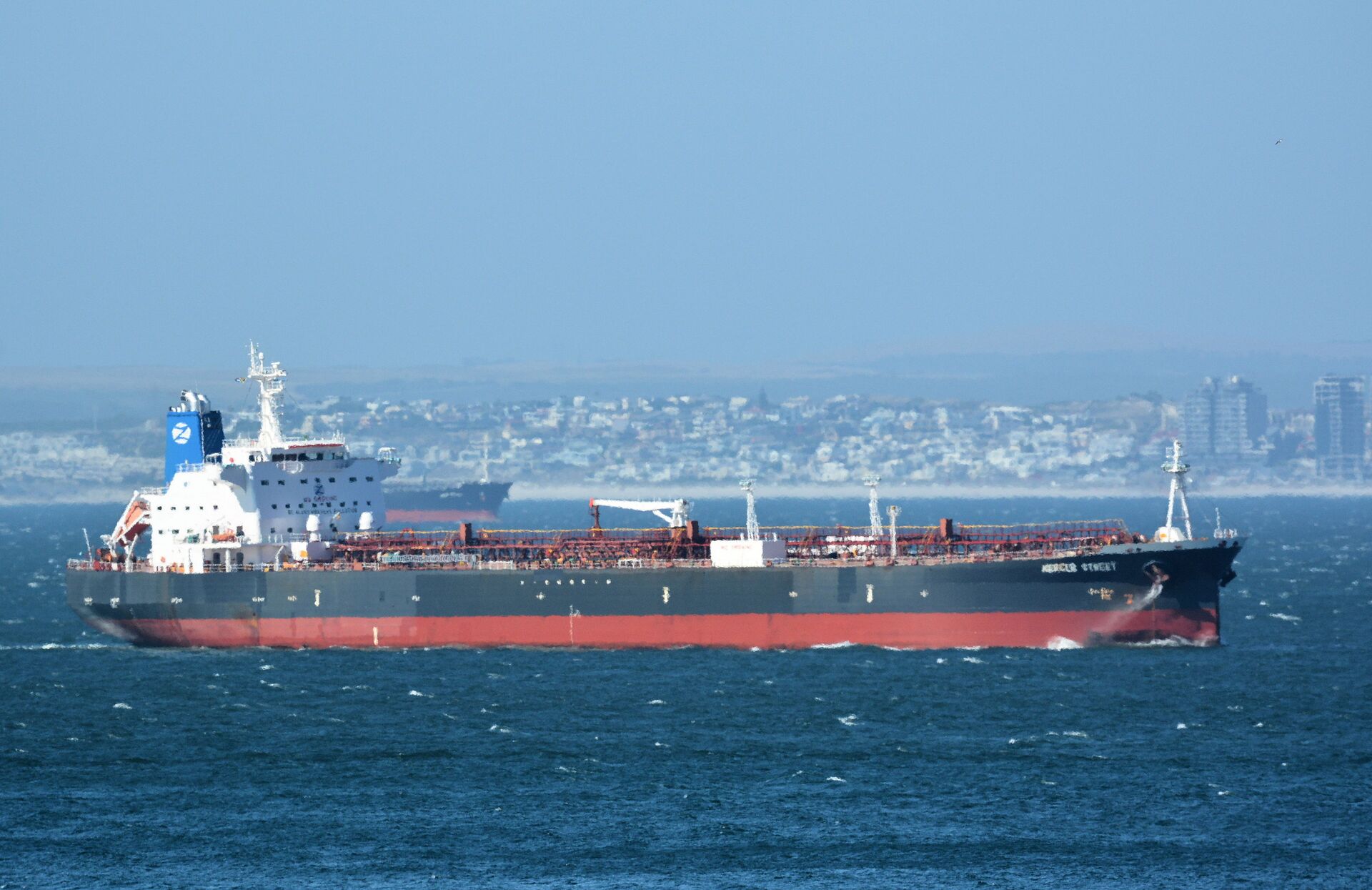
The Mercer Street, a Japanese-owned Liberian-flagged tanker managed by Israeli-owned Zodiac Maritime that was attacked off Oman coast as seen in Cape Town, South Africa, December 31, 2015 in this picture obtained from ship tracker website, MarineTraffic.com. Picture taken December 31, 2015. Johan Victor/Handout via REUTERS THIS IMAGE HAS BEEN SUPPLIED BY A THIRD PARTY. MANDATORY CREDIT. NO RESALES. NO ARCHIVES.
© REUTERS / JOHAN VICTOR
Israeli Defence Minister Benny Gantz said Iran was “the greatest threat to peace in the region”.
“We call on the international community to act to stop Iranian aggression,” Gantz said.
US Secretary of State Antony Blinken echoed the sentiments, saying, “It is on all of our nations to hold accountable those responsible. Failing to do so will only fuel their sense of impunity and embolden others inclined to disregard the maritime order.”
Tehran denied the accusations.
“All such allegations [related to the Mercer Street] are the repetition of fabrications pumped to media by the Israeli regime immediately after that incident. There is no irrefutable, verifiable and conclusive evidence to substantiate these grave accusations,” said Zahra Ershadi, Iran’s deputy ambassador to the United Nations.

